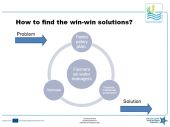
Problem Solution Wheel - Aquarius |
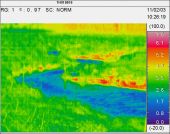
Denmark - Infra red camera showing where the water leaks |
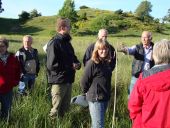
Denmark - Grazing guilds ensure easy acces to water for cows and maintenance of habitat |
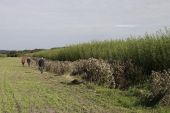
Denmark - Willows provide reduced N leaching, compliment green energi, and farmers can develop individually |
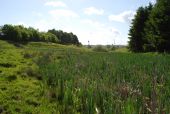
Denmark - Constructed wetlands reduce nutrient loss from drainage, are cost effective, and farmers can develop individually |
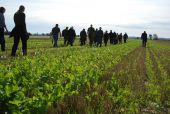
Denmark - Catch crops between two winter cereal crops results in reduced nitrate leaching, more nitrate for next crops |
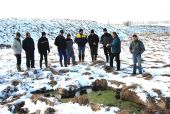
Denmark - Advisory session on farm scale: Optimizing environment without loss of production |
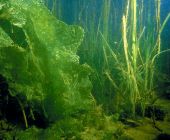
Denmark - Problem: Excess loading of nutrients |
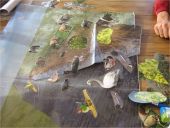
Delfland - To support and improve communication in Midden-Delfland, visual representations of ecosystem services were developed with the use of input from all stakeholders. |
differsperiodically.jpg)
Delfland - The impact of climate change in Midden-Delfland differs periodically: periods of drought (moistening of polderdikes) alternated by flooding |
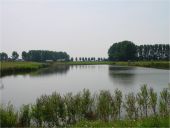
Delfland - Open water storage as possible ecosystem service in Midden-Delfland is, with the use of input of farmers, investigated in a social cost-benefit analysis. |
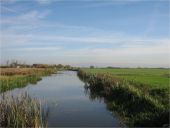
Delfland - Nature friendly banks prevent land erosion and may improve waterquality. Agrarian maintenance of nature friendly banks (ecosystem service) was successful on a practical level and might be upgraded in Midden-Delfland. |
alsohavetodealwiththeremovalofslurryjpg)
Delfland - Farmers who perform ecosystem services (dredging) also have to deal with the removal of slurry. Feasibility is examined to mix the slurry with cow dung and reed cuttings to use it as soil improver and fertilizer. |
whichcanbedonebyfarmers(ecosystemservice).jpg)
Delfland - Empty waterbuffers need to be maintained (mowing) which can be done by farmers (ecosystem service). |
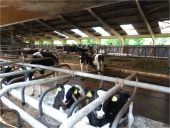
Delfland - The pilot Midden-Delfland consist mainly of dairy farms |
.jpg)
Delfland - Farmers who perform ecosystem services also have to deal with the removal of biomass (reed cuttings). In Midden-Delfland feasibility is examined to use the cuttings as deep litter, soil improver and fertilizer. |
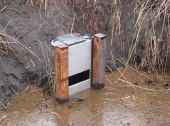
Drenthe - Water conservation with small farmer operated weirs |
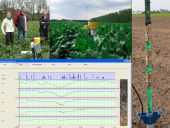
Drenthe - Using sensors and computer modelling for efficient irrigation |

Drenthe - Remote controlled conservation weirs |
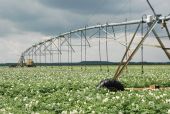
Drenthe - Pivots are a solution for efficient sprinkling on large scale farms |
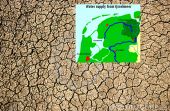
Drenthe - In dry summer periods the area needs water supply from Ijssel Lake. |
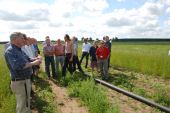
Drenthe - Farmers visit Niedersachsen |
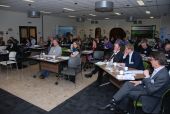
Drenthe - Aquarius transnational meeting March 2011 |
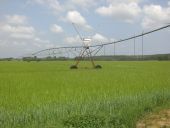
Germany - Problem: Increase of deficit of the climatical waterbalance is increasing need for irrigation, which is essentially done from deep groundwater layers. Further extraction is supposed to harm the local small watercourses |

Germany - How much water does the creek need? |
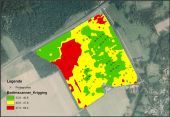
Germany - Precision-Irrigation: Testing of further innovation. Testing field in Uelzen |

Germany - Networking: Hydro-geological Excursion of stakeholders in Uelzen |
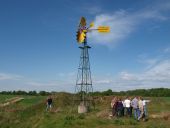
Germany - Networking: Bilateral Exchanges with farmers from Sweden and the Netherlands |
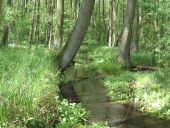
Germany - Groundwater-household: Hydrogeological modelling. Small creeks: Ecological and hydraulical studies |
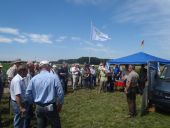
Germany - Open Day at the Experimental Field 2011. Testing varieties on resilience to watershortage; longterm impact of compost to improve waterstorage-capacity of sandy soils; innovative seeding techniques. |
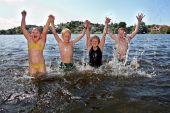
Norway - Western lake Vansjø. After many years of swimming ban, swimming is safe again |

Norway - Western lake Vansjø . Important recreation area. Algal bloom caused by large phosphorus loads from agriculture |
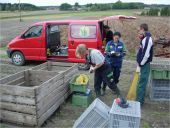
Norway - Research as basis for reduced phosphorus fertilization |

Norway - Reduced erosion and phosphorus losses by no soil tillage in autumn |
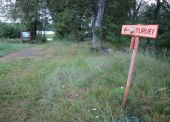
Investment Norway Demonstration 2 |
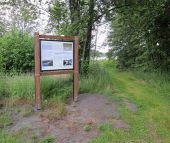
Investment Norway Demonstration 1 |

Norway - Farmer sharing experiences at Aquarius transnational workshop in Norway |
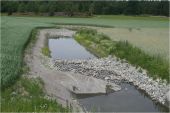
Norway - 16 small constructed wetlands have been established |
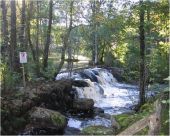
Sweden - River survey - physical disturbance of ex. river bed and fish migratory passages |
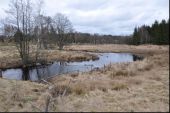
Sweden - Possible future controlled flooding area |
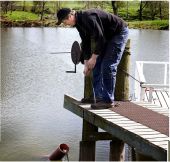
Sweden - Pilot farmer follows his water management plan |
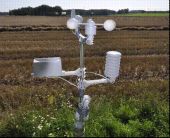
Sweden - Local meteorological stations used in the hydrological survey. Farmers are suggested to take over the equipment |
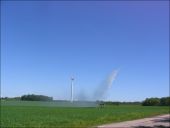
Sweden - Farmers establish irrigation groups to secure the water supply |
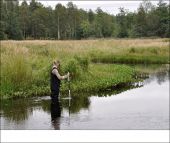
Sweden - Catchment survey - water quantity management is complex due to floods, but also water shortages during summer |
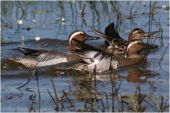
Sweden - Breeding bird surveys show higher species number around constructed wetlands |
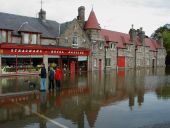
Scotland - The Tarland Burn joins the River Dee just below Aboyne. The village of Aboyne also experiences flooding. |
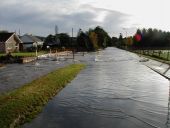
Scotland - Tarland village & road Flooding |
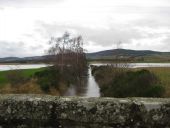
Scotland - Tarland Burn Spate. In spate conditions flooding effects adjacent farmland as well as the local villages. |
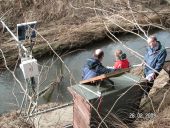
Scotland - Monitoring water quality and quantity at the Macaulay monitoring station on the Tarland Burn |

Scotland - Natural Flood Management Workshop in Tarland January 2011 |
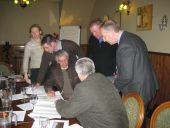
Scotland - Farmers workshop March 2010 |
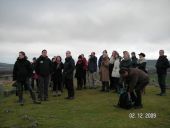
Scotland - Aquarius Transnational workshop 2009 |

Workshop in Norway |

Workshop in Norway |
|